The benefits of hilba. The use of the Egyptian Helba. For beauty, fast growth and strengthening of hair.
Of course, tea is not a primordially Russian drink, but in Russia it has been loved and appreciated from time immemorial. Rarely in any family breakfast is complete without a cup of fragrant black, green, red, yellow tea with or without milk, with fragrant herbs, pieces of fruit, honey.
If you, too, can be attributed to loyal admirers of a fragrant drink, then you will probably like helba tea, the beneficial properties of which are well known in the countries of the East.
Its name translated from Latin means - Greek hay. This drink has been known since ancient Egypt. In those days, the helba plant was used as medicine... Infusion smeared burns, healed wounds. It is said to have been used to induce labor. It was added to the composition of mixtures for embalming mummies.
As an effective medicine, helba was used by residents of the Arab countries, China. With its help, they relieved of fever, renal colic, eliminated hernia, treated intestines, lungs, muscle pain. In addition, it was used in the treatment of genital infections, impotence. Later, healers of the American continent and European countries treated female diseases with its help.
How to brew it correctly?
In general, of course, there are significant differences between making a helba drink and brewing ordinary tea. Here's how it's done:
First, the seeds (namely, they form the basis of the helba raw materials) must be washed very well under running water. Then spread out in a warm place, on a flat surface covered with a napkin, so that the raw material dries well. Only now the helba is ready for brewing.
Put 2 tsp. seeds in an enamel saucepan, add 200 ml. boiling water. Boil, then simmer over low heat for about 7 minutes. Then cover warmly, wait 10 minutes. Strain. If you want, you can add honey, your favorite herbs like mint or cardamom, or some cinnamon to the finished drink. Tea is very good with milk or lemon. In general, there are no strict, well-established rules for its use. 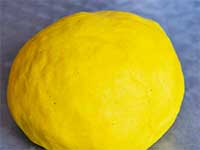
True, what the taste of the finished drink looks like, no one can really explain. Someone categorically dislikes them, while others describe the sensations from him with complete delight. Therefore, no one will describe the taste of this yellow tea to you. So try it yourself. In the morning, brew an invigorating drink, the beneficial properties of which we have just discussed, and take a sip. Perhaps after that you, like many others, will fall in love with this tea.
Beneficial features
Even in ancient Arabic medicine, helba occupied a leading position among natural medicines. This plant was included in recipes for the preparation of medicinal mixtures, ointments, infusions, decoctions and herbal preparations. Today hay fenugreek is intensively used by folk and traditional medicine all over the world. You can buy shambhala at any pharmacy and in the spice departments of large outlets. Regular consumption of tea from this plant promotes weight loss, which has made it popular in dietetics.
The benefits of helba are multifaceted:
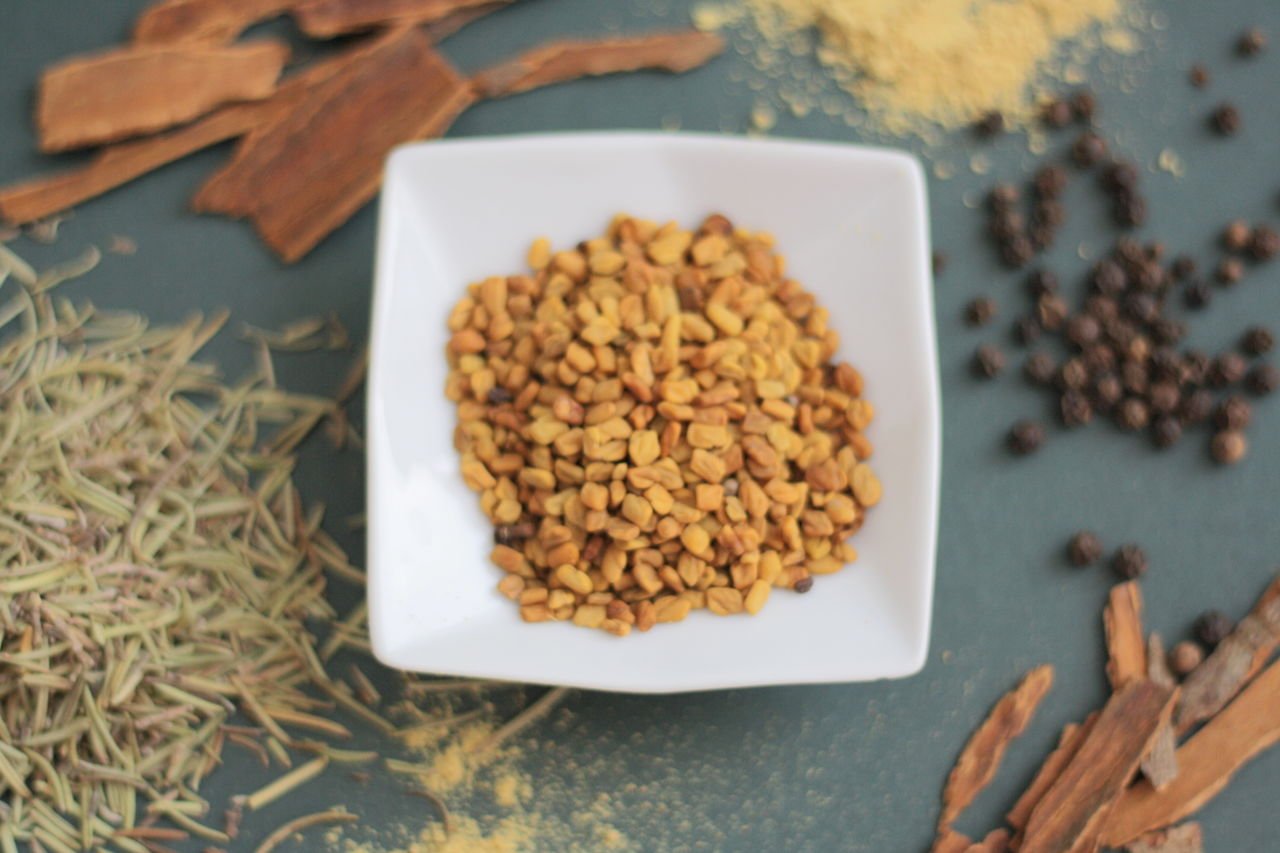
Helba seeds are mainly used. Spices are prepared from them, teas are brewed, decoctions, tinctures and ointments are prepared.
In order for the seeds of the plant to be able to fully reveal all their useful qualities, they must be ground.
Grinding is done only after thorough rinsing and drying of the feedstock. Those who prefer to purchase finished products should pay attention to the shelf life of the product.
Are there any harm and contraindications? Excessive use of helba can be harmful, but moderate consumption (3 to 4 cups daily) cannot do any harm. The shelf life is limited to 3 months, after its expiration it is not recommended to use the plant.
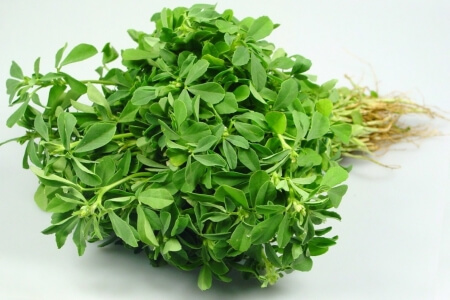 Helba has several contraindications: pregnancy (possibly increased uterine tone); individual intolerance; tendency to food allergies; type I diabetes mellitus (insulin dependent); bleeding in the intermenstrual period; bronchial asthma; any neoplasms in the mammary glands; high levels of estrogen and prolactin; increased blood clotting; simultaneous administration of medications; children under 7 years of age. The course of admission should be limited to 6 weeks, after that - a break for 2 weeks.
Helba has several contraindications: pregnancy (possibly increased uterine tone); individual intolerance; tendency to food allergies; type I diabetes mellitus (insulin dependent); bleeding in the intermenstrual period; bronchial asthma; any neoplasms in the mammary glands; high levels of estrogen and prolactin; increased blood clotting; simultaneous administration of medications; children under 7 years of age. The course of admission should be limited to 6 weeks, after that - a break for 2 weeks.
Culinary compatibility of the product
Helba tea goes very well with: honey; lemon; milk. with legumes (when used together, it contributes to better assimilation of the latter). You can also prepare this drink with the following additional ingredients: ginger; turmeric; caraway seeds; lemon 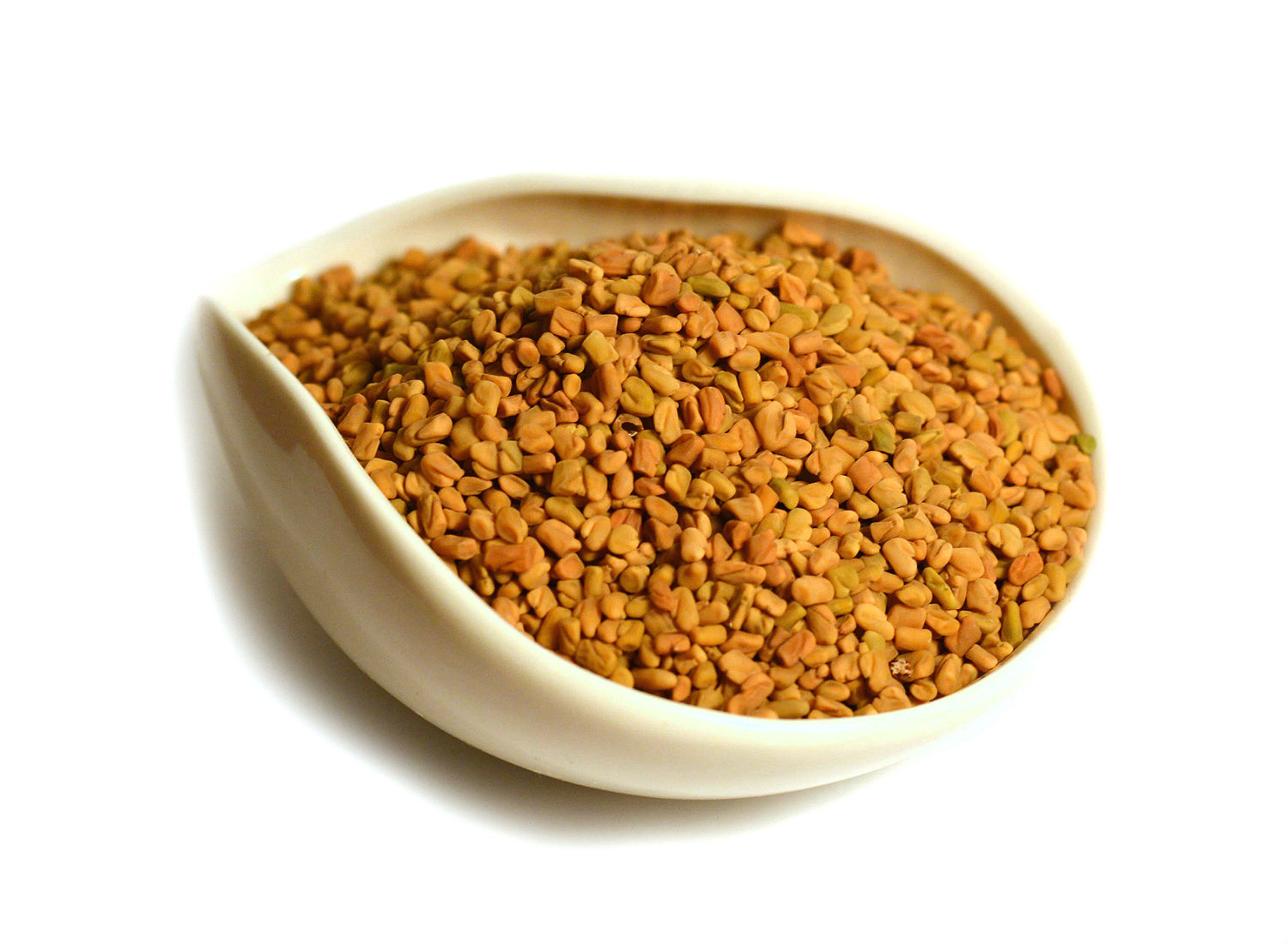 boiled juice and zest.
boiled juice and zest.
How best to store this tea
As a rule, fenugreek seeds are stored for a long period of time, but it is imperative
adhere to the conditions of their storage, you should keep them in an airtight container. Also, when purchasing yellow teas, you need to pay attention to what is written on it, including the shelf life, this will allow you to get only the most useful from the drink.
The land of pyramids and pharaohs has been famous since ancient times big amount healers. Do not be surprised that a lot of medicinal herbs and recipes have come to us from there, which are used to this day not only in various treatments, but also for cosmetic purposes. One of these universal plants is helba (shambhala, fenugreek, camel thorn), which means "hay, grass". IN different countries of the world it is called differently and one of its names is "yellow tea".
Many Arab healers say about the benefits of tea that this plant could replace many medicines and its price should be measured in gold. The prophet Muhammad also expressed piety to this plant.
A little later, the English scientist Kleber also spoke favorably about the helba, saying that this plant is able to balance along with all the medicinal plants in the world.
In ancient Egypt, fenugreek (helba) was placed in tombs for the dead. Young women used it to speed up labor and improve milk quality. In ancient treatises, they found records and recipes about the amazing abilities of the plant. It has the ability to improve the hair follicle, protecting against baldness. Women of the East and in modern days use fenugreek for breast augmentation and other forms. In the East, a woman with roundness is the standard of beauty and health.
In our country, tea from Helba also began to gain popularity. Many women use it for menstrual pain and intestinal poisoning (dysbiosis).
On a hot day, it will perfectly refresh and quench your thirst. You can use it as much as you like, if there are no contraindications to it.
During colds, they just need to stock up, since it has a cleansing effect of the bronchopulmonary tract.
Such abilities make you get to know the Egyptian "doctor" better.
Composition and application
The Egyptian plant belongs to legumes and only ripe seeds are used. They are a bit like buckwheat. This plant can be found in the southeastern countries of Europe, India, France, Egypt, Morocco, Argentina.
By chemical composition helba has such nutrients and trace elements as starch, various amino acids, iron, phosphorus, magnesium, potassium, a small content of essential substances. It contains retinol, thiamine, riboflavin, ascorbic and folic acid, enzymes and many other substances.
If you brew tea from this plant correctly, then all its useful components are completely transferred into the drink. It is also used by obese people for weight management.
The seeds of this plant are rich in the content of a huge amount of vitamin and mineral complex. The daily intake of some elements exceeds her needs. The energy value of the plant is only 12 kcal in 1 teaspoon.
Egyptian culture is widely used to treat:
- diabetes and improved blood composition;
- colds - to improve sputum discharge, lower temperature and increase immunity;
- various forms of lung diseases and tuberculosis;
- gastrointestinal tract (cholecystitis, gastritis, ulcers, colitis, constipation, etc.);
- skin diseases (eczema, inflammation, wounds);
- female inflammation and impotence;
- severe anemia (weight loss with prolonged diets).
It is used to relieve various pains: headache, toothache, joint pain, muscle pain, during menstruation, as well as neuralgia.
Helba has properties to lower blood sugar, slow down the process of blood clotting.
This plant has some contraindications and side effectstherefore it must be used with caution. This is especially true for pregnant women and those who have a duodenal ulcer, diabetes with insulin dependence. It is also not recommended for women with elevated levels of estrogen and prolactin in the blood.
The plant also has the likelihood of allergies. Therefore, it is supposed to be canceled.
Egyptian yellow tea: where to buy and how to make
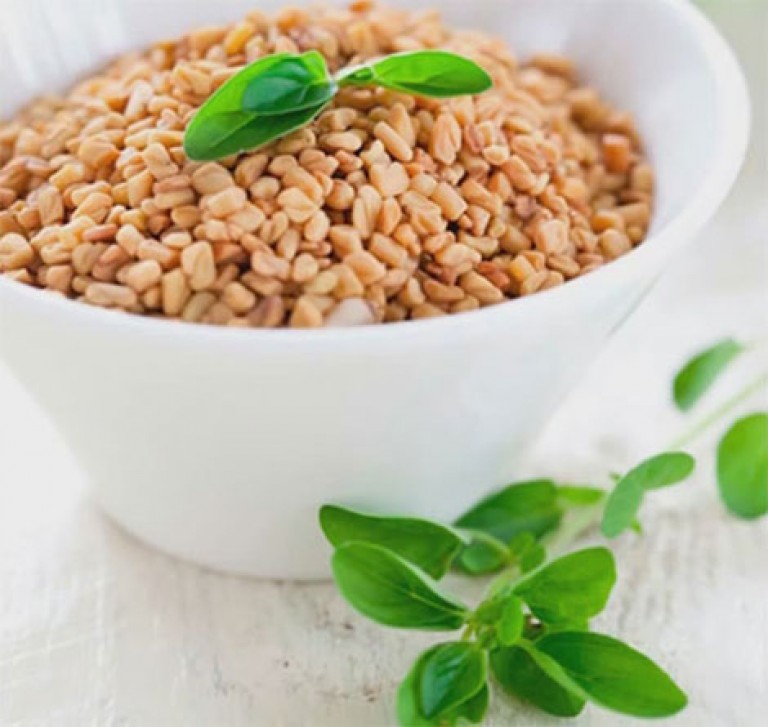
It may seem that this tea can only be bought by order, but not always, and it can still be found in some markets or specialized tea salons. It can also be ordered online and sold in seed form.
If you were able to purchase it, then making yellow tea will not be difficult:
- Rinse the seeds before brewing.
- Add 250 ml of water to one tablespoon of seeds, boil for about seven minutes in a water bath. This way the taste and aroma of the tea is better felt.
You can do it differently. Rinse, dry, grind the seeds in a blender or coffee grinder. Take 1 teaspoon of the resulting composition, pour 1, 5 glasses of water and put to boil for about 7-10 minutes over low heat.
For the best taste and aroma, helba seeds are fried in a clean, dry frying pan. It is allowed to improve the taste with a spoonful of sugar or honey, a pinch of cinnamon or ginger powder, a few drops lemon juice (lemon wedge). Sometimes it is drunk with milk.
Take 2 teaspoons for one cup of drink. tablespoons of seeds or 1 tsp. a spoonful of ground seeds.
Good fresh helba tea does not have a bitter taste, but has a delicate peculiar aroma. If you tried it for the first time, you can imagine a huge palette of fragrance shades. Someone can smell the aromas of fresh mushrooms or bitter cheeses. Perhaps aromas of oriental spices with a touch of ginger or vanilla will appear.
Yellow tea should be consumed regularly for good results. It will allow the body to get rid of toxins, restore the structure of the mucous membrane of the stomach and intestines. Able to remove sand and small stones in urolithiasis and biliary diseases.
With a cold, it will easily help the discharge of mucus in the bronchopulmonary system, eliminate inflammation, reduce pain, relieve fever.
It is able to increase stress resistance, perfectly invigorates and restores strength.
traditional medicine recipes
A decoction of helba seeds is used for sore throat, purulent processes in the oral cavity as a gargle.
To lower blood sugar (with diabetes), fenugreek decoction is used along with other herbs in complex treatment. 2 tbsp. tablespoons of yellow tea seeds are poured with a glass of cool boiled water and insisted for up to 10 hours. The resulting broth is consumed along with a stevia broth.
You can improve the metabolic process if you eat one tbsp daily. a spoonful of crushed fenugreek seeds along with 1 teaspoon of honey.
Dysentery will soothe a decoction of fenugreek seeds (1 tablespoon per glass of water).
A thick broth of dates and fenugreek seeds is able to remove sand from the bladder, as well as crush small stones.
A decoction of a mixture of herbs will help to cleanse the colon with constipation:
- take 3 tbsp. l. juniper fruit and chopped elderberry root, 2 tbsp. l. dill seed, 1 tbsp. l. fenugreek and aloe seeds;
- grind the mixture and prepare the broth at one time: 1 tsp of the mixture in a glass of water. Such a decoction helps to relieve swelling, is useful in diseases of the cardiovascular system.
Soothes and treats severe arthritis. Mix 1 tbsp. a spoonful of helba seeds with 2 tbsp. spoons of stevia leaves, pour 0.5 liters of hot water and put on water bath languish for about half an hour. A day you need to drink in 3-4 doses for half a glass.
Consuming fenugreek seeds will help strengthen immunity, improve bowel function and sexual function, if you eat 1 teaspoon of crushed plant seeds with a spoonful of any jam before meals.
Cosmetic possibilities
Thanks to great content in a plant product of polyphenols and amino acids, it was also used in cosmetology. The skin and hair look healthy. The substances in the plant do an excellent job with irritation and redness of the skin, have a soothing effect, and renew cells.
Skin care
Cleansing, moisturizing and nourishing masks are made using yellow tea seeds.
Smoothing face mask
This mask uses rice flour and yellow tea. Mix 3 tablespoons of flour with 1.5 tablespoons of crushed yellow tea powder. To this mixture must be added warm water and make a thick gruel. Apply the mask to the face, leaving open areas near the eyes and lips. As it dries, wash off the mask with warm water. This procedure will get rid of acne and smooth out fine expression lines.
Hair care
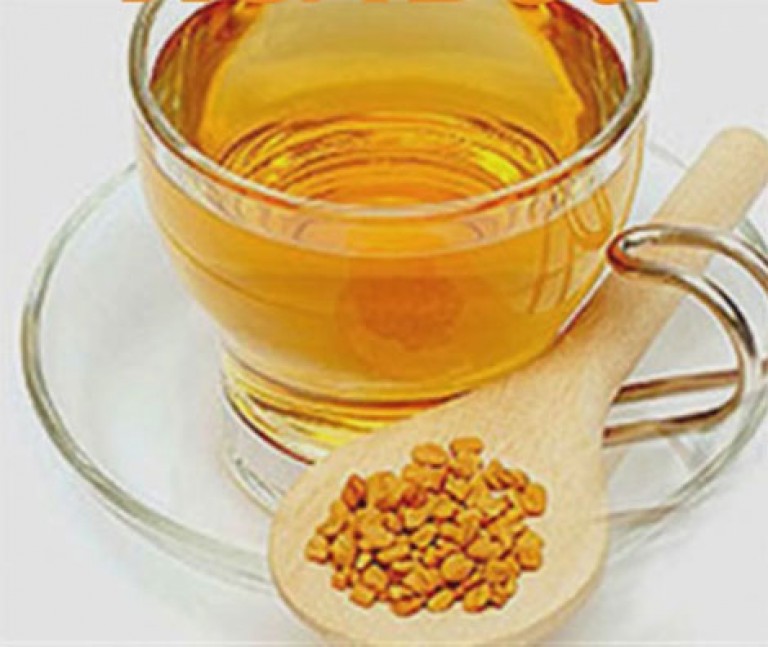
For strengthening and improving hair structure.
In a small vessel on a water bath, warm a mixture of two drops of sandalwood, fenugreek and coconut oils each. Apply a warm mixture to the skin and hair - take in locks and process each from the roots and along the entire length. Then massage the entire head. Cover the head with a film, on top with a towel. Hold the mixture for about an hour, then rinse with shampoo and rinse your hair well.
For beauty, fast growth and strengthening of hair
Brew a teaspoon of helba seeds with a glass of hot water, leave for 1 hour. Pour this infusion into a bottle with a spray bottle. Moisturize your hair several times throughout the day. You can use this composition often. As a result, the hair will soon acquire softness and splendor, grow quickly, get less dirty and fall out less, and have a pleasant aroma.
For hair loss, you can use the following methods:
- 1 tbsp. Boil a spoonful of fenugreek seeds and a glass of water in a bowl until gruel is formed. Apply the mixture to the hair roots and massage a little. Leave on for 15-20 minutes, then rinse well with shampoo.
- It is possible in 1 tbsp. a spoonful of black cumin oil, add 0.5 tsp of crushed fenugreek seeds and leave on the head as a mask for up to 1 hour. Then wash your hair thoroughly.
Very interesting recipes based on this plant are found in Arabic recipes for female breast augmentation.
Recipe for correcting the shape of breasts
Add a few drops of fenugreek oil to sesame or linseed oil. On the clean skin Apply a small amount of oil to the chest and rub it gently counterclockwise around. After 5-7 minutes, you need to take a contrast shower (cold / warm water). If this procedure is performed regularly, the bust will become elastic and will noticeably increase in size. The figure will also noticeably improve its shape.
Increased lactation
Although the properties of fenugreek have not yet been fully studied, many lactating women have noticed that the plant is able to improve the composition and amount of milk the very next day after its consumption. You need to brew it like tea: pour two teaspoons of washed seeds with a glass of water for several hours. And then boil over medium heat for 5-7 minutes. You can drink up to 5-6 times a day. Long-term use of the drink is undesirable for nursing mothers, as it can cause gas formation and bloating, while the color and smell of urine changes.
To improve sexual problems
A decoction of a mixture of yarrow herbs (100 g), calamus root and fenugreek seeds (50 g each) will help to improve potency. To prepare the infusion, take a tablespoon of the mixture and insist in a glass of boiling water until cooling, strain. Drink 3 glasses a day.
Helba is able to improve women's beauty and health for a long time. The plant is a source of estrogen, which is responsible for climacteric conditions and prevents aging. It can be used before ovulation or after menstruation, as it can cause severe bleeding.
For the opportunity to get pregnant
Yes, and this cereal can cope with such a problem.
1st option: one st. pour a spoonful of helba seeds with a glass of water, cook over low heat - 3-5 minutes. Cool slightly, strain and drink, adding honey, lemon, cinnamon or ginger to taste. You can consume up to 3 glasses a day. The course is 1 month.
2nd option: 2 tbsp. Pour tablespoons of fenugreek seeds with a glass of warm boiled water - soak for 3 hours. Do not throw out the seeds, but eat them with half a teaspoon of honey. Drink everything with the resulting infusion. Consume up to 3 such glasses of the mixture per day.
Fenugreek seeds are used to keep woolen items from moths and other insects.
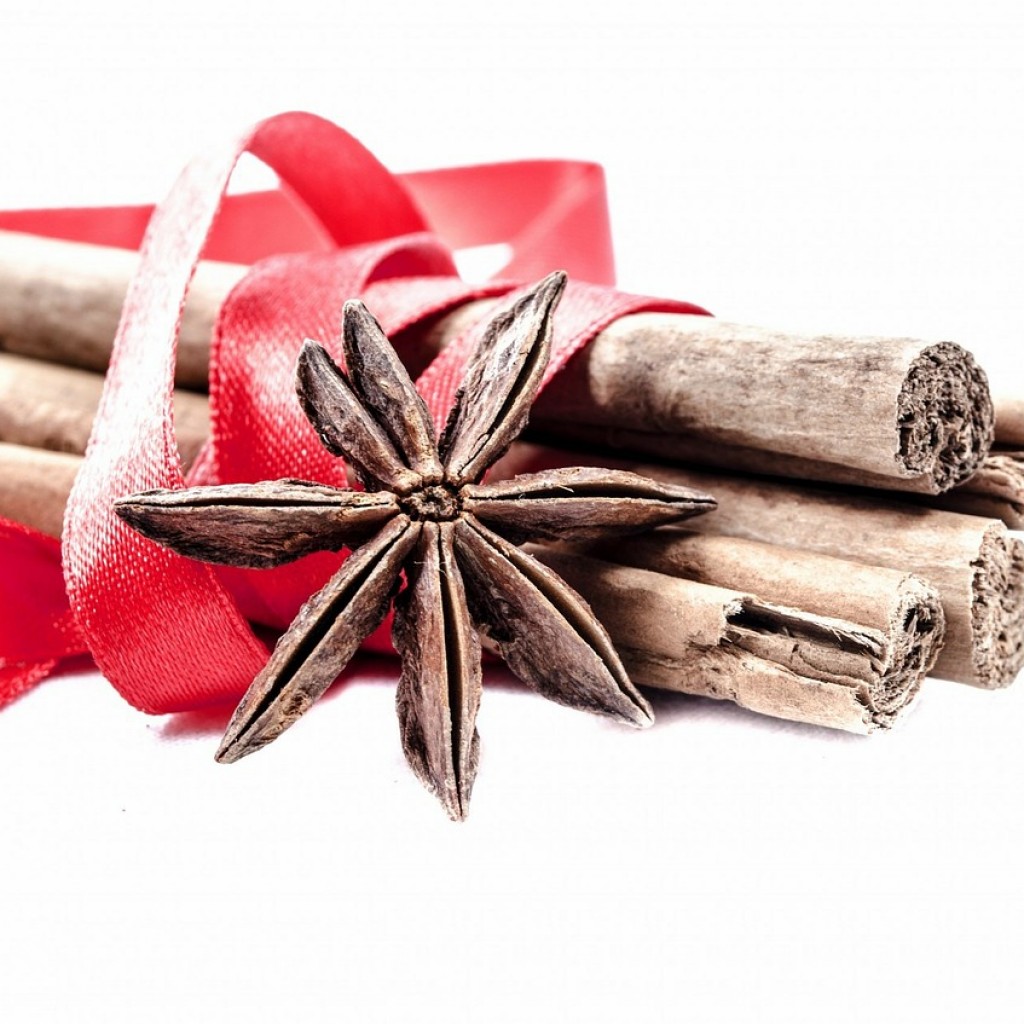
Fenugreek, or helba, or shambhala, or fenugreek, or chaman, and in Latin Trigonellafoenum-graecum, Is an annual herb of the legume family. Each fenugreek bean contains 10-20 small yellow-brown seeds with a bright aroma.
The taste of raw helba seeds to someone resembles celery, to someone maple syrup, and to someone - burnt sugar. After heat treatment, their taste becomes more pleasant for most people.
Fenugreek seed extract and oil have been used in traditional medicine in India, the Middle East and North Africa for thousands of years. These medicinal drugs are known for their antioxidant, antidiabetic, anti-inflammatory and immunomodulatory properties.
Shambhala seeds have the following composition. One tablespoon contains:
- 4 grams of carbohydrates;
- 5 grams of protein;
- 7 grams of fat;
- 7 grams of vegetable fiber.
The calorie content of one tablespoon of fenugreek seeds is 35.5 calories.
In addition to fiber, the seeds contain such useful compounds as:
- iron - 20% of the daily dose;
- manganese - 7%;
- copper - 6%;
- magnesium - 5%;
- phosphorus - 3%
- vitamin B6 - 3%.
This is important to understand!
When a person with a Western mentality wants to know what are the beneficial properties of fenugreek and contraindications for use, he is often interested in the detailed composition of the seeds. He is also worried about modern scientists, who are also trying to "open" the helba and understand which compounds in its composition are most useful.
Of course, this approach has a right to exist. The following list of medicinal properties and contraindications of fenugreek is based on just such a scientific method of explanation. However, this way of describing the work of fenugreek, like that of any other medicinal plant, is not entirely correct.
Since it is well known that individual useful materialisolated from one or another medicinal plant never demonstrate the same properties as the whole plant itself. It is the cocktail of useful compounds in the herb plus its special energetic component that has a truly healing effect.
What is this influence? Let's take a closer look at helba: its beneficial properties, contraindications, side effects.
The main medicinal properties of fenugreek
Improving digestion
Fenugreek seeds are an amazing product, as they are used to combat constipation and to treat some forms of chronic diarrhea.
How is this possible? It's very simple.
Since there is a lot of vegetable fiber in the helba, it helps to normalize stool for people suffering from regular constipation.
At the same time, Shambhala seeds are included in the treatment plan for patients with ulcerative colitis, as they help to eliminate chronic inflammation in the intestines. And here we come to the second important beneficial property of fenugreek - its anti-inflammatory activity.
Fight Chronic Inflammation
The anti-inflammatory properties of helba seeds are associated with the presence of a large amount of antioxidants in it, which protect the body from oxidative stress, which leads to the occurrence of inflammatory processes.
Vegetable fiber is also of great importance, which helps the intestinal microflora, which plays a huge role in immune processes.
The anti-inflammatory properties of fenugreek seeds are so high that in traditional Ayurvedic medicine they are always included in the composition of drugs for inflammatory lesions of the skin and oral cavity, infections of the upper respiratory tract, kidneys and even tuberculosis.
These days it is medicinal plant very actively used for the treatment of colds, flu, SARS and bronchitis.
Lowering cholesterol levels and preventing heart disease
It has been proven that the polysaccharides present in fenugreek (saponins, hemicellulose, viscous and tannins, pectin) help to normalize the lipid profile, reduce the level of "bad" cholesterol and triglycerides.
Moreover, they achieve this effect in two ways at once.
The listed polysaccharides slow down the absorption of food fats in the intestines, primarily cholesterol.
Plus, helba seeds reduce the production of cholesterol by the liver. Having a beneficial effect on the functioning of the intestinal microflora, they contribute to the fact that the intestinal bacteria begin to secrete special volatile fatty acids that penetrate into the bloodstream, reach the liver and reduce the rate of cholesterol biosynthesis.
However, the main benefit for the cardiovascular system and the prevention of its ailments, in particular atherosclerosis, is associated with fenugreek seeds not so much with a decrease in "bad" cholesterol as with an anti-inflammatory effect. After all .
Decreased blood sugar
4-hydroxyisoleucine and vegetable fiber from shambhala seeds slow down the absorption of food sugars in the intestines, which prevents a rapid rise in blood glucose levels.
Fenugreek is an aphrodisiac. Do not forget about this when using it. It especially affects men.
These are primarily those who are overweight and have a large belly, that is, it is quite obvious that they suffer from insulin resistance (the initial stage of the development of diabetes mellitus).
Improving athletic endurance
It has been found that the combined use of fenugreek and creatine makes it possible to significantly increase physical endurance.
The use of dietary supplements with creatine and fenugreek enhances the strength of the muscles of the upper body and at the same time improves the proportions of the body: it helps to build muscle mass and get rid of fat deposits.
Increased lactation, decreased symptoms of PMS and menopause
Fenugreek is extremely beneficial for women's health.
So the substance diosgenin present in its seeds increases milk production. And choline reduces the severity of symptoms of menopause and premenstrual syndrome.
Fenugreek for weight loss - is it necessary or not?

Like many other medicinal plants, Shambhala has a double effect. It can both help to gain weight when necessary, and help to part with its excess for those who need it.
Thus, it is correct to say that fenugreek normalizes weight, and not that they lose weight from it or get fat on it.
Helba seeds help to lose weight
If you look closely at medicinal properties fenugreek listed above, it will become clear that this medicinal plant simply cannot help but help you lose weight.
- Helba normalizes blood sugar levels. And this makes it possible to get rid of the main reason for gaining excess weight -.
- Prevents the absorption of excess fat present in food.
- It normalizes the work of the intestinal microflora, which is very important for people in need of weight loss, since their digestive tract is usually inhabited.
- Helps eliminate chronic inflammation, which, according to modern scientific concepts, is the basis of many diseases, including overweight.
- Improves physical endurance, allowing you to quickly get rid of unnecessary body fat with the help of fitness for weight loss.
- The presence of a significant amount of fiber in fenugreek seeds slows down digestion and helps, thereby, reduce the amount of calories consumed during the day.
- Improving the mental state (relieving anxiety, fighting depression), due to the normalization of the intestinal microflora, which directly affects the human mental sphere, helps to get rid of psychogenic overeating.
How, with such properties, can fenugreek contribute to weight gain? It turns out that it can.
Helba helps you gain weight when you need it
In traditional medicine in the Middle East and North Africa, fenugreek has always been used to help increase body mass in those in need.
Lean choux pastry
Knead the fenugreek dough and you will automatically be able to add this healthy spice in many dishes - dumplings, manti, unsweetened dumplings, etc.
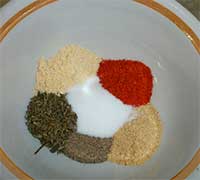 Multi-colored salt with spices
Multi-colored salt with spices
A similar colored salt with spices is prepared in Bulgaria. And then add to any dishes that your heart desires. It is very convenient - once you cook salt and then use it for a long time for a variety of dishes.
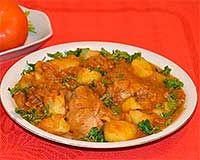 Chicken chakhokhbili
Chicken chakhokhbili
This is one of the most popular dishes in our country, in the preparation of which helbe is often used.
Of course, chicken stew doesn't have to be cooked with chaman. However, many connoisseurs of this dish believe that without this spice it loses half of its tsimes.
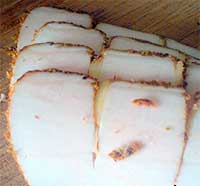 Lard with chaman
Lard with chaman
Another great recipe "in reserve" with shambhala. Prepared lard for future use and eat a little of it with health benefits. And you should not be afraid of the harmful fat of lard, since they are just not harmful.
| Prevention of cardiovascular diseases | Lower blood sugar, control diabetes | Improving the work of intestinal microflora |
| Weight normalization | Help in the treatment of malignant neoplasms, primarily those that are localized in the intestine | Prevention and treatment of colds, flu, ARVI, bronchitis |
| Stool normalization | Elimination of heartburn | Improving the appearance of the skin, treating acne, boils, etc. |
| General strengthening of the body and increasing physical endurance | Optimizing eating behavior | Reducing PMS Symptoms |
| Improvement in the condition during menopause | Increased lactation | Fight against impotence |
The use of helba seeds for weight loss and other medical purposes is usually associated with brewing tea or eating whole raw seeds soaked overnight.
In cooking, fenugreek is used in small quantities as a spice with a bright aroma, which is perfect for meat, fish and vegetable dishes.
SIMILAR MATERIALS
Of course, tea is not a primordially Russian drink, but in Russia it has been loved and appreciated from time immemorial. Rarely in any family breakfast is complete without a cup of fragrant black, green, red, yellow tea with and without milk, with fragrant herbs, pieces of fruit, honey.
If you, too, can be attributed to loyal admirers of a fragrant drink, then you will probably like helba tea, the beneficial properties of which are well known in the countries of the East. Its name translated from Latin means - Greek hay. This drink has been known since ancient Egypt. In those days, the helba plant was used as a medicine. Infusion smeared burns, healed wounds. It is said to have been used to induce labor. It was added to the composition of mixtures for embalming mummies.
As an effective medicine, helba was used by residents of the Arab countries, China. With its help, they relieved of fever, renal colic, eliminated hernia, treated intestines, lungs, muscle pain. In addition, it was used in the treatment of genital infections, impotence. Later, healers of the American continent and European countries treated female diseases with its help.
How is Helba tea useful?
As you can imagine, tea is made from dried crushed plant - Helba fenugreek, the beneficial properties of which were admired by Hippocrates. He used it to relieve painful menstruation, and recommended it to relieve pain during childbirth. On the advice of the doctor, nursing mothers drank Helba infusion to increase the amount of milk.
Scientists have found that Egyptian tea contains a lot of digestible proteins, carbohydrates, essential mineral salts (potassium, phosphorus, magnesium, iron, calcium, sulfur, starch, zinc). There are many vitamins (B, E, D, C, B1, B2, PP,) as well as valuable folic acid.
Helba yellow Egyptian tea has excellent warming properties, therefore it is very useful in winter cold. Traditional medicine recommends an infusion based on a plant for bronchitis, as an effective expectorant. If the cough is dry, dilute strong fenugreek tea with warm milk.
The seeds of the plant are used as an antipyretic, very effective diaphoretic. Therefore, they are recommended to be brewed for various colds. Helba tea helps to increase appetite, normalizes digestion, soothes the nervous system. The drink effectively cleanses the body of toxins.
If you drink a cup in the morning, the drink tones up perfectly, provides the body with energy, and increases efficiency. But you should not overuse the drink. Just one small cup in the morning is enough. If you drink a lot of it, you can get an upset stomach.
The drink has a pronounced anti-inflammatory effect, which makes it an effective remedy against a variety of diseases. Thanks to this antioxidant property, Helba tea has a positive effect on the entire circulatory system.
In particular, the drink strengthens the walls of blood vessels, lowers blood pressure in hypertension. The plant contains a large amount of iron, so I recommend taking the drink in case of iron deficiency anemia, anemia, as it increases hemoglobin. The fruits of the plant contain phytosterols, which have a positive effect on the hormonal system of the body.
However, one should be aware that pregnant women should be wary of this drink. The plant contains the substance diosgenin. It has the ability to tone the uterus. Therefore, if its concentration is exceeded, there is a risk of miscarriage.
In general, it should be noted that many experts consider Helba tea to be a female drink, since the plant contains plant substances similar to female hormones.
Tea is recommended for people with diseases such as tuberculosis. But in case of diabetes mellitus, asthma, other allergic diseases, especially with a severe form of the course, before you start drinking it, you need to consult your doctor.
How to brew it correctly?
In general, of course, there are significant differences between making a helba drink and brewing ordinary tea. Here's how it's done:
First, the seeds (namely, they form the basis of the helba raw materials) must be washed very well under running water. Then spread out in a warm place, on a flat surface covered with a napkin, so that the raw material dries well. Only now the helba is ready for brewing
Put 2 tsp. seeds in an enamel saucepan, add 200 ml. boiling water. Boil and then simmer over low heat for about 7 minutes. Then cover warmly, wait 10 minutes. Strain. If you like, you can add honey, your favorite herbs like mint or cardamom, or some cinnamon to the finished drink. Tea is very good with milk or lemon. In general, there are no strict, well-established rules for its use.
True, what the taste of the finished drink looks like, no one can really explain. Someone categorically dislikes them, while others describe the sensations from him with complete delight. Therefore, no one will describe the taste of this yellow tea to you. So try it yourself. In the morning, brew an invigorating drink, the beneficial properties of which we have just discussed, and take a sip. Perhaps after that you, like many others, will fall in love with this tea.
Contraindications
This is a fairly extensive list: vaginal blood loss, pregnancy, iron anemia, type 1 diabetes mellitus, thyroid disease. In all these cases, you should consult a doctor and do not try the drink without him.
Conclusion
So we talked about yellow tea, helba tea, how to brew, useful properties, contraindications you learned. As you can see, behind the word tea, which does not cause any concern, the drink may not be so harmless and harmless for people with certain health conditions. It will only benefit everyone else! Be alert and healthy!
Hello dear readers! Today you will learn about the mega useful, but forgotten plant - helba. Let's talk about the benefits and harms of helba, contraindications for use and why EVERY woman over 40 should know about it. Read the article to the end, the information is very valuable!
Helba - a forgotten plant
Helba has been known since ancient times. In Russia, in Egypt, in India, in the Arab countries, she has always been held in high esteem, because she cured many diseases. Better than some of today's medicines. Helba is also called Khilba, Fenugreek, Shambhala.

It is interesting to know that in the Middle Ages, the seeds of this plant were worth more than gold. It was believed that it could balance 1000 diseases. Now helba is unjustly forgotten, because many tablets are produced.
Here are just artificial pills and have many side effects, and helba - natural product from nature itself. Read on, these seeds can replace many of your pills!
Useful properties of helba for health
Friends, have you noticed that in recent years people are increasingly returning to folk knowledge? And helba is one of such almost forgotten knowledge. So how is helba useful for human health, what medicinal properties does it have and what diseases does it treat? But which ones:
- severe and chronic cough, bronchitis;
- colds and flu, high fever;
- indigestion;
- pathogenic intestinal microflora;
- constipation and difficulty emptying;
- inflammation of the female genital organs;
- stomatitis and toothache.
But the action of the helba is not limited only to the treatment of diseases. It is also beneficial for health promotion, especially for weakened people. Its beneficial effects on the body are as follows:
- improves metabolic processes in bone marrow, nerve and stem cells;
- improves the functioning of the genitourinary organs;
- has a positive effect on the entire respiratory system;
- has a calming effect on the nervous system, helps with stress;
- helps to raise the level of hemoglobin in the blood;
- helps with weight loss, because it well reduces hunger;
- strengthens the immune system due to the high content of trace elements and B vitamins.
I will separately note the positive effect of the plant on women. After 40-50 years, many women begin to experience a lack of sex hormones. Helba is rich in extragen and helps to quickly bring women's health back to normal.

I was personally convinced of the positive impact of helba on health. Me and my mom really like making tea with helba. This is the most common form of application for hilba. The recipe, my dears, I will share a little later.
Also, seeds are used in cooking as a seasoning for dishes, as a spice. Note that this is a very healthy and tasty addition to any salads and soups. Try it!
Separately, I would like to note that the oil from the seeds of this plant is used in cosmetology for the growth and strengthening of hair, as well as for smoothing and softening the skin.
Helba contraindications for use
Friends, this is a very powerful plant and it must be used for their health by both women and men. However, you need to know the precautions so that hilba does not harm you.
I read on many sites only one contraindication of helba - early pregnancy. My dear girls, in fact, the plant has others harmful propertiesforgot to mention.
First of all, helba is harmful for tumors of the female reproductive system, uterine myoma, endometriosis, adenomyosis. IN traditional medicine Khilba is called "female herb", and this causes some confusion, because not all women can use it.
Therefore, my dear readers, if you have serious diseases of the genital organs, you do not need to blindly look at the beneficial properties of helba, and before using it, you need to consult with a good doctor or naturopath.
The use of helba seeds: recipes for ailments
How to take helba? I will give you effective recipes for the main diseases that this wonderful plant heals:
Recipe number 1. Instructions for the use of seeds. For the treatment of colds and flu, take 1 tbsp. a spoonful of seeds, pour 0.5 liters of water and leave for several hours. Stir and drink 3-5 times a day.

Lemon or cranberry juice is often added to get even more vitamins. This is the only way to help with colds! A couple of days and vanished.
Recipe number 2. When inflammatory processes female genital organs take a small bath or basin and take sitz baths with a warm Helba broth. Additionally, they drink tea according to recipe # 1 three times a day.
Recipe number 3. For constipation, disorders of the stomach and intestines, they drink tea from the helba (see recipe number 1). If the problems are serious, you can use not one, but two tablespoons per half liter of water.
Recipe number 4. For toothache and stomatitis, you need to hold ground helba seeds behind your cheek or rinse the sore spot with strong tea from them. By the way, with tonsillitis, when the throat is very sore, you can gargle with broth. It helps a lot.
You can buy helba seeds for treatment in online live food stores.
Here are useful properties possesses helba. Use it and this forgotten plant will give you good health.
Dear readers, at the end of the article, I have a question for you: are you using helba or are you just planning? Write in the comments from what diseases she helped you, how she improved your health. Leave your feedback, share your experience!
That's all for today. Waiting for your comments. And if you liked the article and found it useful, share it with your friends, acquaintances and pets. Let everyone know about the wonderful helba seeds! And I'll go make myself herbal tea... See you later!
